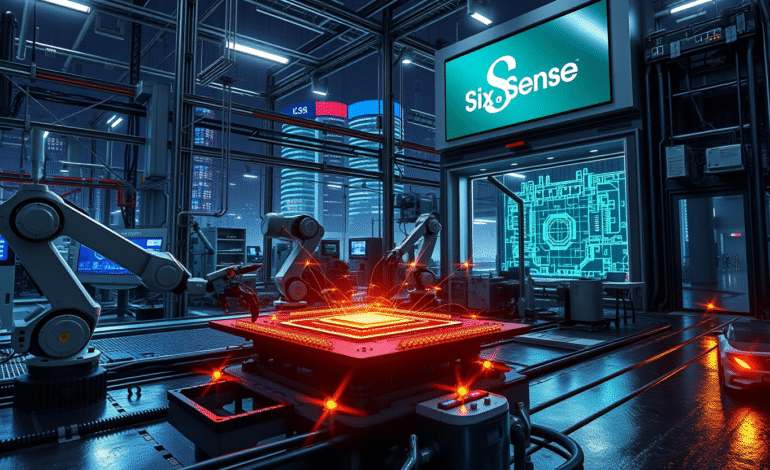Revolutionary AI Startup SixSense, Led by Women, Secures $8.5 Million in Funding for Semiconductor Innovation

In Singapore, deep tech startup SixSense has developed an AI-powered platform designed to revolutionize semiconductor manufacturing by predicting and detecting potential chip defects in real time. The company, founded in 2018 by engineers Akanksha Jagwani (CTO) and Avni Agarwal (CEO), has secured $8.5 million in Series A funding, bringing its total capital raised to approximately $12 million. The round was led by Peak XV’s Surge, with participation from Alpha Intelligence Capital, FEBE, and other investors.
SixSense aims to address a critical challenge in semiconductor manufacturing: the transformation of raw production data into actionable insights that enable factories to prevent quality issues and enhance yield. The platform converts defect images and equipment signals into real-time intelligence, even amid the vast volumes of data generated on the factory floor.
Akanksha Jagwani brings expertise in manufacturing, quality control, and software automation from her experience building automation solutions for manufacturers such as Hyundai Motors and GE, as well as leading product development at startups like Embibe. Agarwal contributes technical knowledge from her tenure at Visa, where she developed large-scale data analytics systems that were subsequently protected as trade secrets. Her strong background in mathematics and proficiency in coding led her to explore AI applications in traditional industries beyond fintech.
After evaluating various sectors, the duo identified semiconductors as the most promising area for innovation. Although the semiconductor industry is renowned for precision, inspection processes remain largely manual and fragmented, Agarwal said. After consulting with over 50 engineers, it became evident that significant modernization was needed in the quality control process.
Today’s fabs are equipped with dashboards, SPC charts, and inline inspection systems, but most merely display data without further analysis, Agarwal explained. Engineers must manually identify patterns, investigate anomalies, and trace root causes—a time-consuming, subjective process that does not scale effectively with increasing process complexity.
SixSense offers engineers early warnings to address potential issues proactively by providing capabilities such as defect detection, root cause analysis, and failure prediction. The platform is specifically designed for use by process engineers rather than data scientists, simplifying the deployment of models in under two days without requiring any coding.
Competition in this sector includes in-house engineering teams utilizing tools like Cognex and Halcon, inspection equipment manufacturers integrating AI into their systems, and startups such as Landing.ai and Robovision. SixSense’s AI platform is already being employed by major semiconductor manufacturers like GlobalFoundries and JCET, with over 100 million chips processed to date. Customers have reported benefits including up to 30% faster production cycles, a 1-2% increase in yield, and a 90% reduction in manual inspection work, the founders stated. The system is compatible with inspection equipment covering more than 60% of the global market.
SixSense targets large-scale chipmakers, including foundries, outsourced semiconductor assembly and test providers (OSATs), and integrated device manufacturers (IDMs). The company already collaborates with fabs in Singapore, Malaysia, Taiwan, and Israel, and is now expanding into the U.S.






